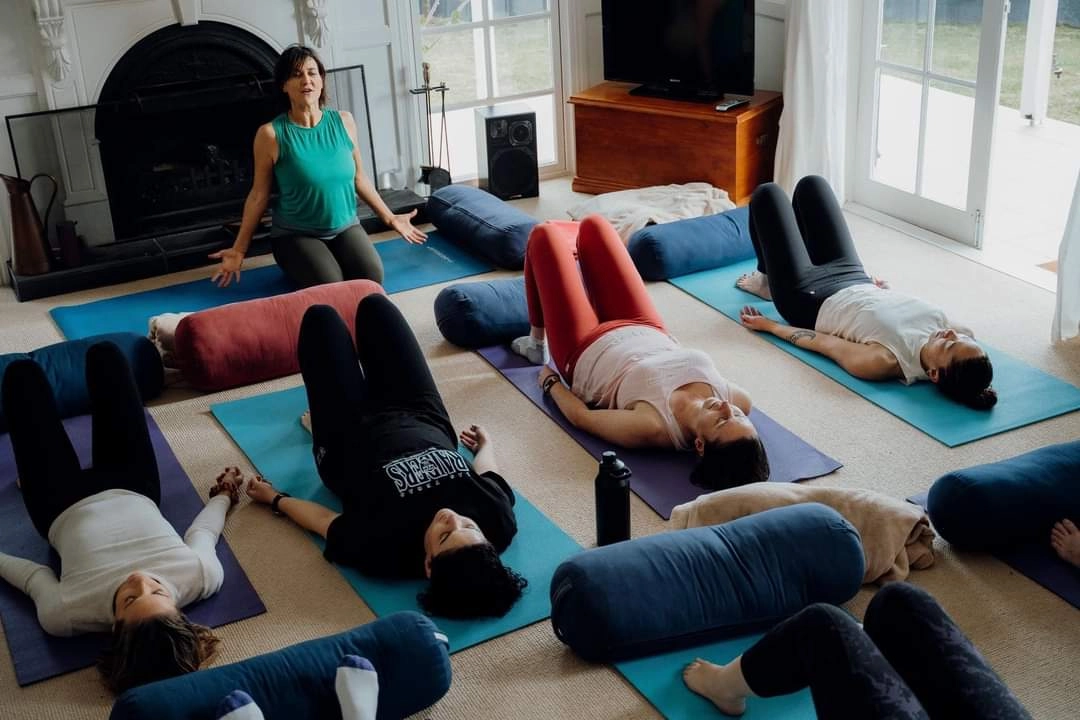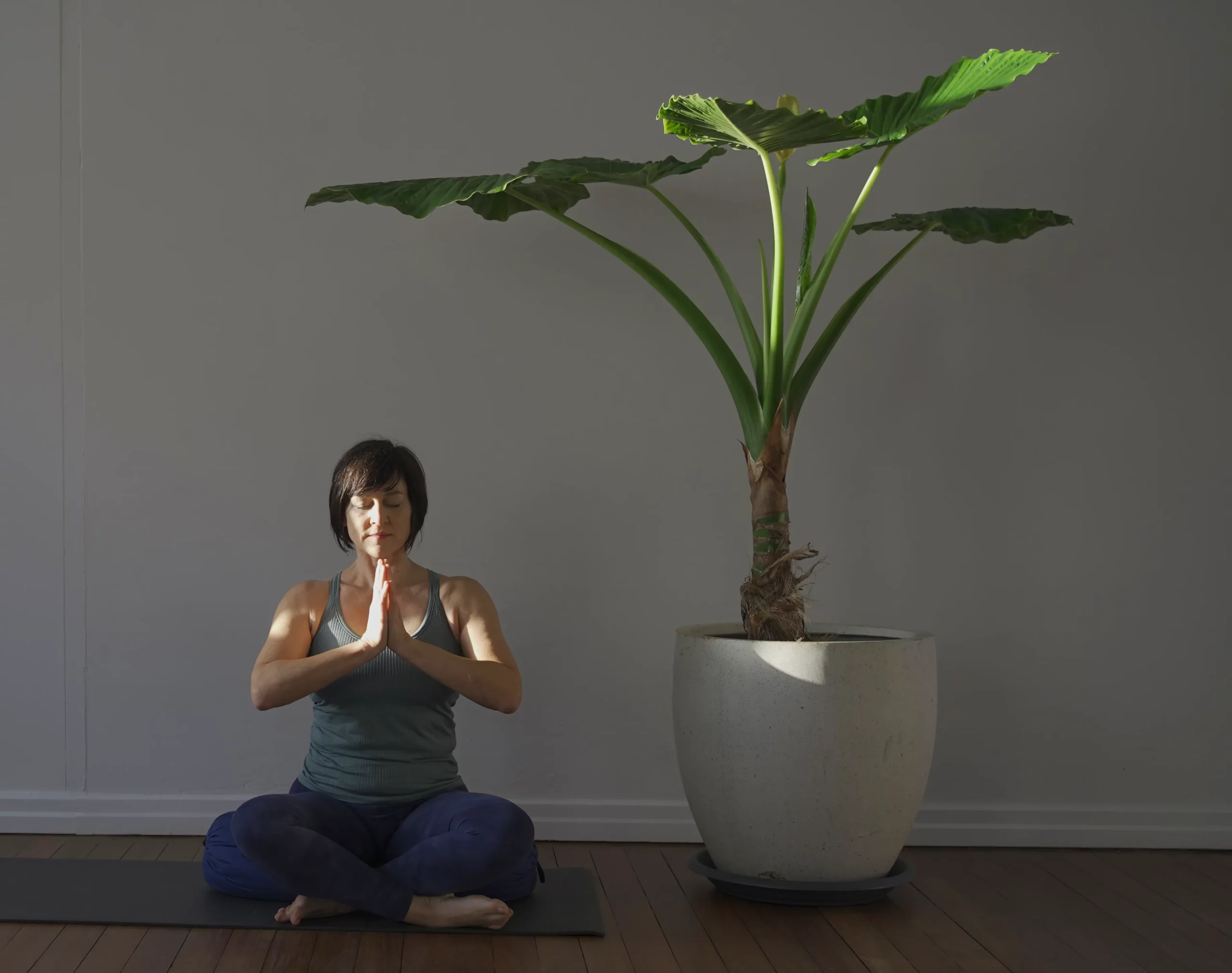By prioritising the FIVE Pillars of Wellbeing, we develop a more sustainable work-life balance.
This creates space for self-care, quality time with loved ones, pursuing hobbies, exercise, and relaxation to help foster increased happiness, life satisfaction, and overall wellbeing.
1
Regular Wake Time
By incorporating regular breaks into your routine, you allow your mind to recharge, prevent mental fatigue, and increase your ability to sustain high-quality work
Research has consistently shown that brief periods of rest and rejuvenation can significantly enhance concentration, creativity, and job satisfaction.

Here are some tips to help you effectively incorporate breaks into your routine:
- Schedule Breaks: Set specific times for breaks throughout your day. This could include short breaks every hour or longer breaks at designated intervals.
- Move and Stretch: During the day take time to move and stretch. This helps improve blood circulation, reduces muscle tension, and refreshes your body and mind. A short walk and deep breathing can recharge and revitalize you during the day.
- Use Timers or Reminders: Set a timer or use a reminder for a specific break duration and make it a habit to step away from your work during that time.
- Disconnect from Work: Use your breaks as an opportunity to disconnect from work-related tasks and technology. Step away from your desk, avoid checking emails or work-related messages, and focus on activities that help you relax and recharge.
- Engage in Activities You Enjoy: Use your breaks to engage in activities that bring you joy and relaxation, this can boost your mood and provide a much-needed mental break from work.
- Hydrate and Nourish: Use your breaks to hydrate and nourish your body. Drink water or have a healthy snack to replenish your energy levels to help maintain optimal focus, productivity and overall wellbeing.
NB: the key is to take regular breaks consistently throughout the day.
Experiment with different strategies to find what works best for you and your workflow.
2
Nourish yourself with a Healthy Lunch

By incorporating regular breaks into your routine, you allow your mind to recharge, prevent mental fatigue, and increase your ability to sustain high-quality work
Research has consistently shown that brief periods of rest and rejuvenation can significantly enhance concentration, creativity, and job satisfaction.
3
Take time for Mindfulness
Mindfulness offers the ability to cultivate a sense of presence in every aspect of our life.
By integrating mindfulness, you can alleviate work-related concerns during leisure time and increase focus when you’re working.
Explore simple techniques to incorporate mindfulness into your daily routine, allowing yourself to be fully aware in each moment with a non-judgmental mindset towards whatever arises.
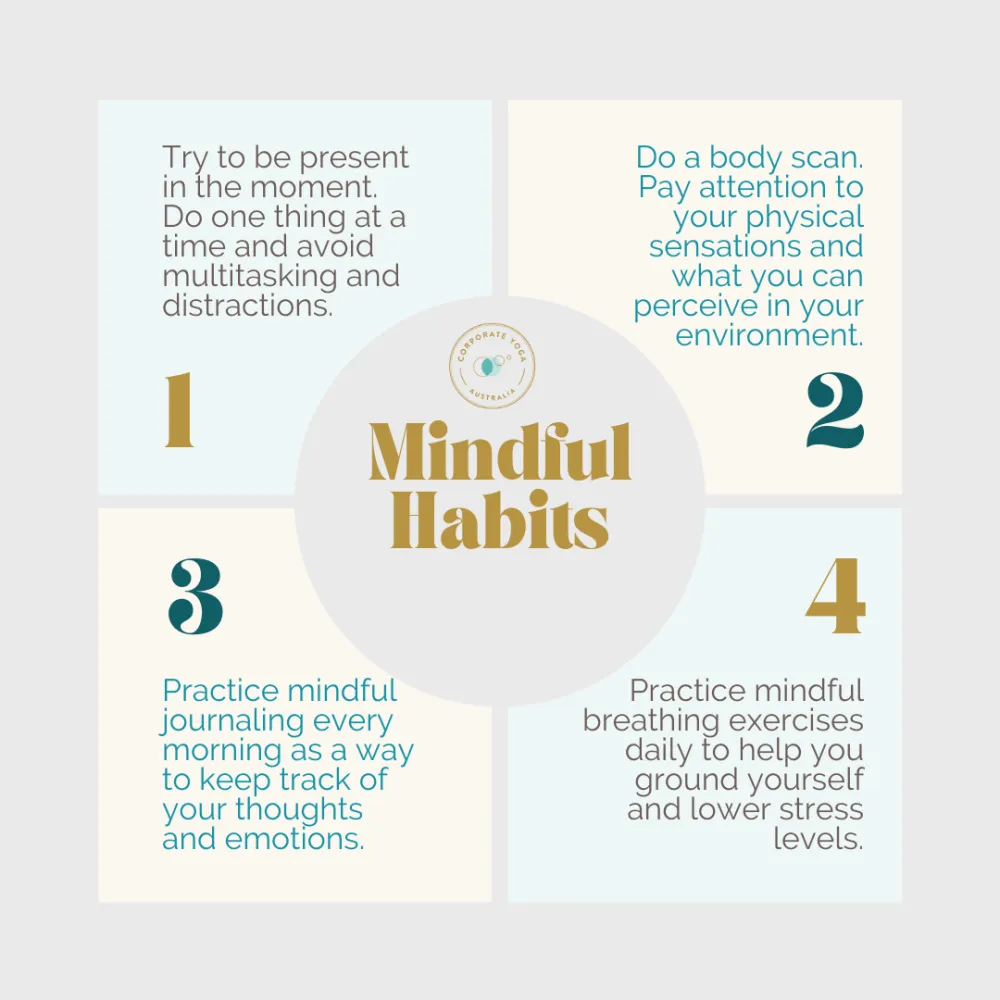
4
Get comfortable with 'NO'
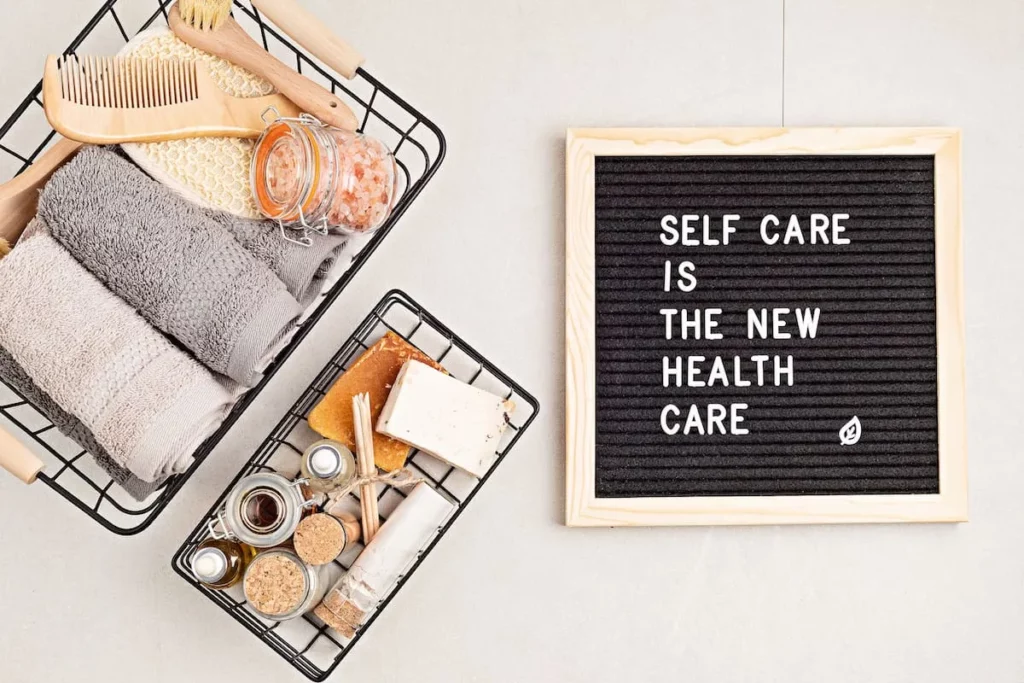
Reflect on activities, people and work that depletes or overwhelms or drains you.
Make time to care for yourself
Identify what activities and people energise you and make sure to allocate time for those activities. Treat personal time as an essential appointment and schedule it in your calendar.
Whether it’s a yoga class, meditation practice or walk around the block, designate specific periods solely for yourself.
5
Build Connections with your Community
Make time to connect with colleagues or friends. Social interactions help alleviate stress, foster connection, and contribute to a positive work environment.
Especially In a hybrid work environment, building team connections is crucial. to help us to collaborate more effectively, communicate openly, and support work-life balance.
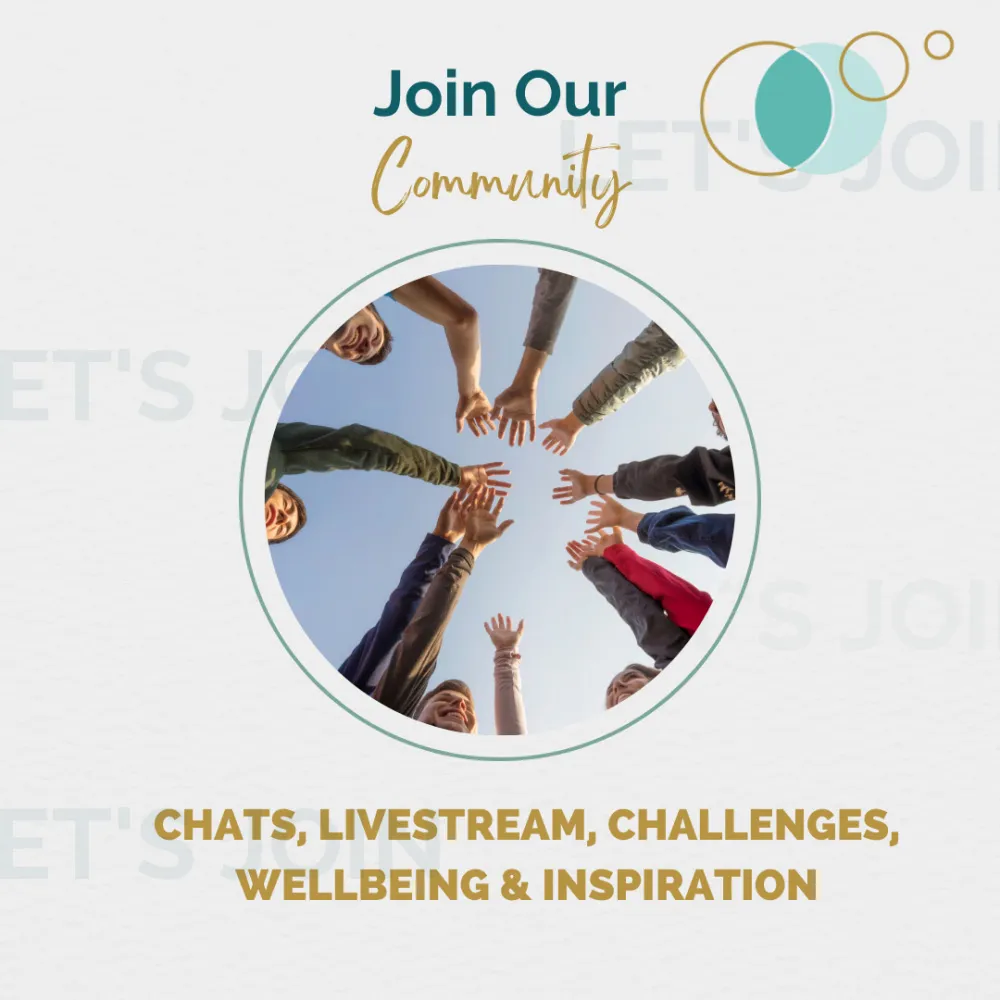
6
Unplug from Technology

How often do you disconnect?
Constant connectivity can blur the lines between work and personal life.
Dedicate moments to unplug and engage in activities that do not involve screens, allowing your mind to rest and recharge fully.
Periods of disconnection help prevent burnout, allows your mind to rest, recharge, and recover from work-related stress.

